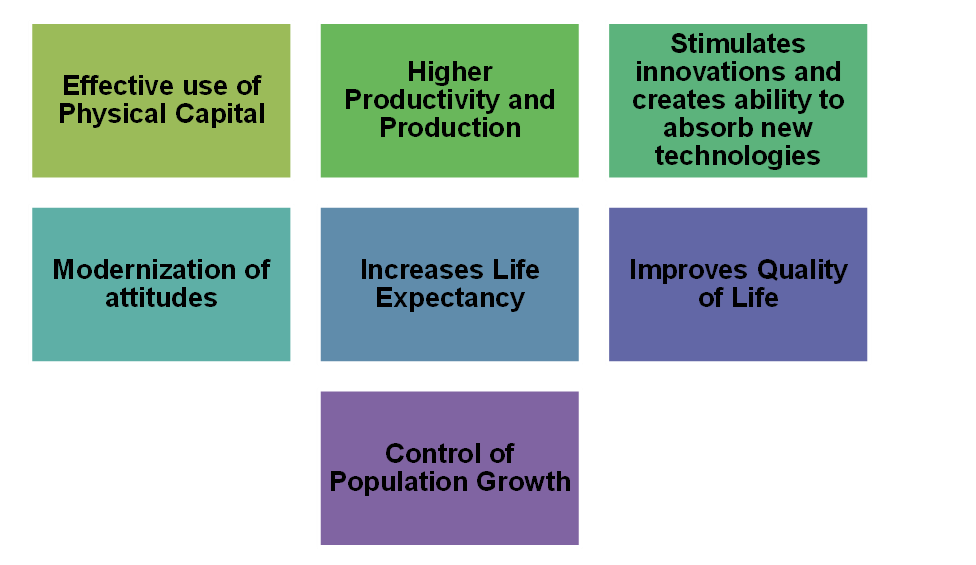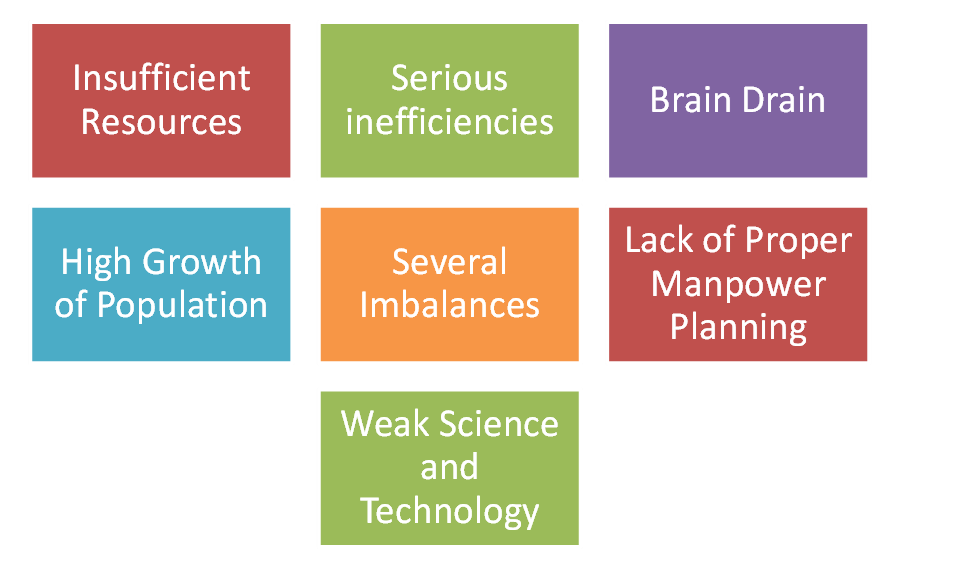IMPORTANCE OF HUMAN CAPITAL FORMATION

- Effective use of Physical Capital: The growth and productivity of physical capital depend extensively on human capital formation.
- Physical capital can be created only by means of hard and intelligent work of human beings in the economy.
- Hence, human skill and their efforts help in Modernization of Attitudes effective utilisation of physical capital.
- . Higher productivity and production: Human capital raises the productivity and production as knowledgeable and skilled worker makes better use the resources.
- Increase in productivity and quality production depends on technical skill of the people, which can be acquired only by means of education, training and maintaining the he of the people.
- Investment in human capital helps in acquiring new skills and knowledge relating to management of resources, technology and production.
- Inventions, innovations and technological improvement: The human capital formation stimulates innovations and creates ability to absorb new technologies.
- Education provides knowledge to understand changes in society and scientific advancements, which facilitates inventions and innovations.
- Similarly, the availability of an educated labor force facilitates adaptation to new technologies.
- Modernization of attitudes: The knowledgeable, skilled and physically fit people are powerful instruments of change in society.
- Economic development of a country depends on the minds of the people and their changing attitudes towards creating a 'will' for development.
- Investment in human capital helps in changing mental outlook and promotes development of the economy.
- Increases life expectancy: Formation of human capital raises life expectancy of the people. Health facilities and availability of nutritive food enable people to live a healthy and long life. This, in turn, adds to the quality of life.
- Improves Quality of Life: The quality of population depends upon the level of education, health of a person and skill formation acquired by the people.
- Human capital formation not only makes people productive and creative, but also transforms the lives of the people.
- People start living and enjoying higher incomes and life that is more satisfying.
- Control of population growth: It has been observed that educated persons have smaller families as compared to illiterate families. Therefore, spread of education is necessary to control the population growth rate.
PROBLEMS OF HUMAN CAPITAL FORMATION

- Insufficient resources: The resources allocated to the formation of human capital have been much less than the resources required. Due to this reason, the facilities for the formation of human capital have remained grossly inadequate.
- Serious inefficiencies: There is a lot of wastage of society's resources as the capabilities of educated people are either not made use of (in case of unemployment) or are underutilized (in case of underemployment). Massive illiteracy, non-education of many children, and poor health facilities are other inefficiencies, which have not been attended to adequately and properly.
- Brain Drain: People migrate from one place to another in search of better job opportunities Care and handsome salaries. It leads to the loss of quality people like doctors, engineers, etc. who have a high caliber and are rare in a developing country. The cost of such loss of quality human capital is very high.
- High growth of Population: The continuous rise in population has adversely affected mic quality of human capital. It reduces per head availability of the facilities.
- Several imbalances: A greater proportion of resources have been diverted towards higher education, which is meant for few people as compared to primary and secondary education. Due to this reason, the general productivity of the economy has remained low.
- Lack of proper manpower planning: There is an imbalance between the demand and supply of human resources of various categories, especially in the case of highly skilled personnel. The absence of such balancing has resulted in the wastage of resources.
- Weak science and technology: In respect of education, the performance is particularly unsatisfactory in the fields of science and development of modern technology.

 PathSet Publications
PathSet Publications
